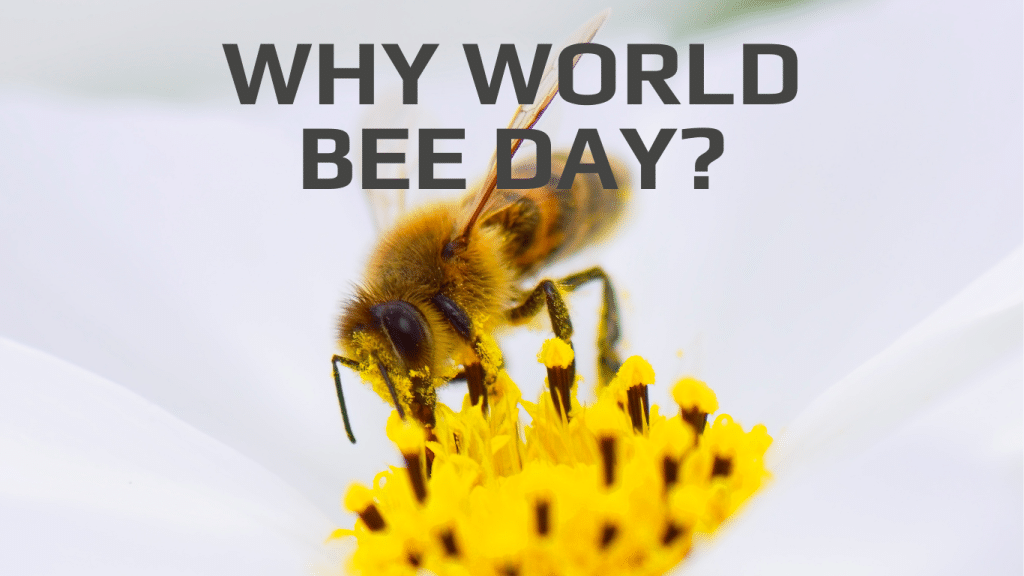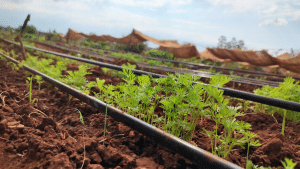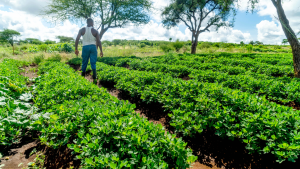
At Ambokili Farm, we deeply understand the essential role that bees and other pollinators play in maintaining the health of our planet and ensuring the sustainability of our agricultural practices. Every year, on May 20th, we join the global community in celebrating World Bee Day. This observance not only honors these incredible creatures but also raises awareness about the significant challenges they face today.
The Legacy of Anton Janša
The story of World Bee Day begins with Anton Janša, born on May 20, 1734, in Breznica, Slovenia. Janša was destined to be a pioneer of modern apiculture, following in the footsteps of his beekeeping family. His early exposure to beekeeping ignited a lifelong passion that would lead him to revolutionise the field. In 1766, Anton enrolled in Europe’s first beekeeping school, where he honed his knowledge and skills. By 1769, he had committed himself fully to the profession, and in 1771, he published his seminal work, “Discussion on Beekeeping,” which laid the foundation for modern apiculture practices.
The Journey to World Bee Day
Fast forward to 2016, when the Republic of Slovenia, with the support of Apimondia, proposed the idea of World Bee Day at the FAO Regional Conference for Europe. The proposal emphasised the need to recognise and address the declining populations of bees and other pollinators. By 2017, the proposal was presented at the 40th Session of the FAO Conference and subsequently received unanimous approval from the UN General Assembly. On May 20, 2018, we celebrated the first World Bee Day, marking a significant step in global efforts to protect our pollinators.
Why World Bee Day Matters
Bees are not just essential for producing honey; they are crucial for the pollination of numerous crops that constitute a massive portion of our diet. Approximately 75% of the world’s food crops depend, at least in part, on pollination. The decline in bee populations, therefore, poses a direct threat to global food security and biodiversity.
Challenges Facing Bees Today
Habitat Loss
Urbanization and agricultural expansion have led to the destruction and fragmentation of natural habitats, severely limiting bees’ foraging and nesting opportunities.
Pesticide Use
The widespread use of pesticides, especially neonicotinoids, has had devastating effects on bee populations, impairing their ability to forage, navigate, and reproduce.
Climate Change
Shifts in climate patterns disrupt the synchronization between bee activity and the blooming of flowers, while extreme weather events can destroy habitats and reduce food availability.
Diseases and Parasites
Bees are also plagued by various diseases and parasites, with the Varroa mite being one of the most harmful. This parasite weakens bees by feeding on them and spreading deadly viruses.
Conservation Efforts at Ambokili Farm
At Ambokili Farm, we are committed to promoting the health and abundance of bee populations through various conservation efforts:
Creating Bee-Friendly Habitats
We have dedicated areas of our farm to planting native wildflowers that provide bees with essential nectar and pollen throughout the year. Our diverse plantings ensure that bees have a continuous food supply. We have also provided hives where the bees are safe and can reproduce.
Reducing Pesticide Use
We adhere to Natural Pest Management practices, which minimise the use of harmful chemicals. By employing natural pest control methods, we create a safer environment for bees.
Promoting Organic Farming
Our commitment to organic farming not only supports the health of our crops but also protects bees from harmful pesticides and promotes a more sustainable agricultural system.
How You Can Help
Everyone has a role to play in protecting bees. Whether you’re a concerned citizen, a farmer, or part of an organisation, there are many actions you can take:
– Plant Native Flowers: Create bee-friendly spaces in your garden or community by planting a variety of native flowers.
– Build Bee Hotels: Provide solitary bees with safe nesting sites by setting up bee hotels in your backyard or local green spaces.
– Support Protective Policies: Advocate for policies that restrict harmful pesticide use and promote habitat conservation.
As we celebrate World Bee Day, let us remember the pioneering spirit of Anton Janša and the critical importance of bees to our world. At Ambokili Farm, we are dedicated to protecting these vital pollinators and encouraging sustainable practices that benefit both our planet and people. Join us in our efforts to ensure that bees continue to thrive, supporting a healthy and abundant world for generations to come.







2 Responses
You have mentioned very interesting points! ps decent web site.Raise blog range
Thank you for the heartfelt comment. Enjoy more content and insights on our News&Blog page as well as social media pages and feel free to give you views again.